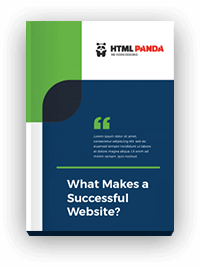From predicting heart attacks to reading X-rays with precision, artificial intelligence is changing the way we understand and deliver healthcare. And nowhere is this more visible than in the world of online doctor consultations. What started as simple video calls between patients and doctors has evolved into a tech-powered ecosystem where AI helps streamline, personalize, and optimize care, often before the doctor even joins the call.
AI-powered systems are being trained to handle everything from symptom checking and appointment scheduling to triage and clinical decision support. As noted in this blog by HTMLPanda, AI-driven chat support can transform customer experience across industries including healthcare. Applied thoughtfully, these tools don’t replace doctors, they empower them to offer faster and more accurate care at scale.
AI-Powered Symptom Checkers and Smart Triage
The journey of an online consultation often begins before the patient meets the doctor. AI tools are now capable of conducting smart symptom checks using a conversational interface asking patients a series of questions to narrow down potential causes. This process is not only faster than traditional intake forms but also dynamic, adapting its questions in real time based on previous answers.
Such tools allow doctors to begin the consultation with pre-analyzed data, which means less time spent on repetitive history-taking and more time focusing on nuanced clinical judgement. These AI systems are also trained to recognize red flags and automatically escalate serious cases, ensuring that emergencies get prioritized. This reduces delays, especially on high-traffic platforms.
Intelligent Scheduling and Resource Optimization
Online doctor consultation platforms often operate with limited human support. AI helps fill that gap through intelligent scheduling algorithms. These systems analyze doctor availability, specialization, urgency of care, and even patient preferences to match each patient with the most suitable professional automatically.
Over time, AI learns from patterns to improve booking logic. For instance, if a particular doctor consistently receives high satisfaction ratings for dermatological cases, the system may begin routing similar cases toward them. This not only boosts patient satisfaction but also optimizes resource utilization on the platform.
Personalized Care Through Data-Driven Insights
Modern healthcare is about personalization tailoring treatment to individual needs based on data. AI excels in finding patterns within massive data sets. When applied to virtual consultations, it can alert doctors to recurring symptoms, flag potential drug interactions, and even suggest treatment protocols based on the patient’s history and demographic profile.
For example, if a diabetic patient is consulting about frequent urination and blurred vision, the system can quietly notify the doctor about the possibility of sugar imbalance without making the patient repeat old details. This level of insight enables faster, more precise interventions during an online doctor consultation.
Improving Follow-Up and Continuity of Care
One of the challenges with online consultations is maintaining continuity ensuring that patients follow through with tests, medication, or additional check-ups. AI-powered reminder systems now automate follow-up messaging, medication alerts, and even prompt users for feedback or symptom updates at regular intervals.
This helps close the loop between diagnosis and recovery. Some platforms are also integrating AI with wearable health tech, enabling continuous monitoring of vitals like heart rate, sleep quality, or blood sugar. When readings deviate from expected ranges, automated alerts can trigger follow-ups, turning virtual care into a proactive health companion.
Language, Accessibility, and Inclusivity
India is home to dozens of languages, and for many patients, English is not the preferred language of communication. AI-driven natural language processing (NLP) is helping bridge this gap. These systems can translate patient queries in real time, transcribe consultations for medical records, or even provide voice-to-text features for patients with disabilities.
This kind of accessibility ensures that online healthcare platforms cater not just to tech-savvy users in metro cities but also to elderly patients, rural populations, and people with special needs. AI is also being used to read uploaded images or reports helping doctors get an instant readout of a blood test or skin lesion before they weigh in with their expert opinion.
Security and Fraud Detection
Digital healthcare must also be secure. AI plays a critical role in fraud detection and cybersecurity on telemedicine platforms. It can monitor for unusual activity, such as multiple logins from the same device under different identities, fake prescriptions, or attempts to impersonate doctors.
In addition, AI helps maintain the integrity of medical records by ensuring that data remains encrypted, backed up, and free from unauthorized access. As privacy regulations tighten, especially with initiatives like India’s National Digital Health Mission (NDHM), AI is ensuring that patient data is protected while remaining usable for care.
Future Possibilities: AI Co-Pilots and Diagnostic Assistance
The future is even more exciting. Some platforms are piloting AI “co-pilots” that silently assist doctors during consultations. These systems can listen in (with patient consent), highlight discrepancies, suggest differential diagnoses, and even auto-generate SOAP (Subjective, Objective, Assessment, Plan) notes for record-keeping.
In radiology, AI can already detect tumors with near-human accuracy. In cardiology, algorithms can read ECGs and identify abnormalities in seconds. In psychiatry, sentiment analysis tools can flag emotional distress based on speech patterns and facial cues. When these capabilities are integrated into virtual consultations, the efficiency and quality of care will reach unprecedented levels.
Challenges and Ethical Considerations
Despite the potential, there are challenges to AI integration. Clinical judgement must always remain in the hands of qualified professionals. Over-reliance on algorithms could lead to missed nuances in diagnosis. Data bias is another concern, AI systems trained on non-diverse datasets may misinterpret symptoms for certain populations.
Ethical guidelines and regulatory frameworks must evolve alongside technology. Transparency is key; patients must be informed when AI is assisting in their care. Trust is the foundation of healthcare, and preserving it in digital interactions is non-negotiable.
Final Thoughts: When AI Meets Empathy, Everyone Wins
AI isn’t here to replace doctors, it’s here to empower them. When combined with human empathy and medical expertise, artificial intelligence becomes a powerful ally in delivering smarter, faster, and more inclusive care.
The integration of AI in online doctor consultation platforms is not just a trend, it’s the next logical step in making healthcare more responsive to modern needs. With the right safeguards, training, and vision, this fusion of tech and medicine can dramatically improve how we approach health in our everyday lives.
The journey has just begun but the destination promises a healthier, more connected world for everyone.










